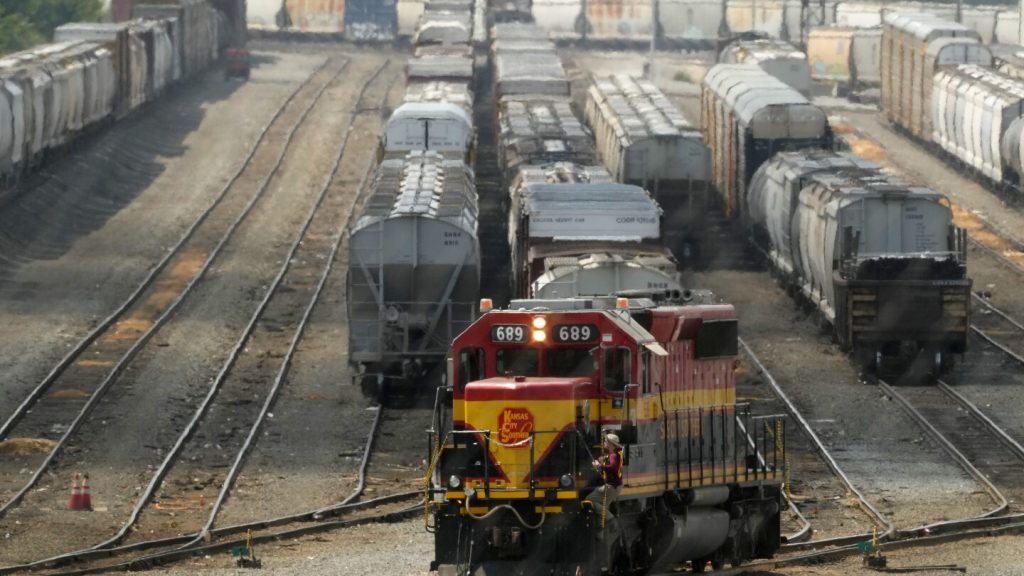In a recent development in Canada, both of the country’s major freight railroads, CN and CPKC, have come to a full stop due to a contract dispute with their workers. The Teamsters Canada Rail Conference represents some 10,000 engineers, conductors, and dispatchers who are involved in the dispute. As a result, all rail traffic in Canada has ceased, impacting the movement of billions of dollars worth of goods between Canada and the U.S. This halt in rail service could have significant economic consequences for businesses and consumers in both countries.
The impact of the railroads shutting down extends beyond just the movement of goods, as over 30,000 commuters in major cities like Vancouver, Toronto, and Montreal will also be affected. With trains unable to operate over CPKC’s tracks, commuters will have to find alternative ways to get to work. Business groups have called on the government to intervene, but Prime Minister Justin Trudeau has not yet forced both sides into arbitration. CN and CPKC have made final offers to the union and have expressed a willingness to end the lockout if the union agrees to binding arbitration.
The negotiations between the railroads and the Teamsters have been ongoing for months, with CN negotiating for nine months and CPKC trying to reach an agreement for a year. Many companies across various industries rely on railroads for the delivery of raw materials and finished products. The shutdown of rail service could force these companies to cut back or even cease operations altogether. This is a rare occurrence with both major railroads stopping at the same time, and the impact will be magnified due to the scale of the disruption caused by the shutdown.
In contrast to the situation in Canada, one of the largest U.S. railroads, CSX, has reached a deal with several of its unions ahead of national bargaining later this year. The unions have signed contracts that provide raises, better benefits, and vacation time for their workers. Trudeau has been cautious about forcing arbitration in Canada’s rail dispute, as he does not want to offend the Teamsters Canada Rail Conference and other unions. He has urged both sides to continue working towards a resolution to avoid the economic damage that would follow a complete shutdown.
The negotiations between the railroads and the union are stuck on issues related to scheduling for rail workers and concerns about fatigue prevention and adequate rest for train crews. The railroads have proposed shifting to an hourly pay system to provide predictability in time off. Manufacturing companies may face challenges if they cannot access rail service, leading to potential production cutbacks or closures. Ports and grain elevators could become congested with shipments, and water treatment plants may face disruptions without new deliveries of essential supplies.
If the rail dispute continues for an extended period, companies may look to alternative transportation methods like trucking to keep their operations moving. However, the volume of goods that railroads typically handle cannot be easily replaced by trucks. The impact of the rail shutdown extends beyond just economic consequences, as it could also disrupt essential services like water treatment plants. As negotiations continue, the pressure is on both sides to reach a resolution and avoid further disruptions to the economy and daily life in Canada.


